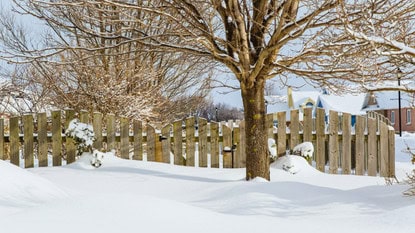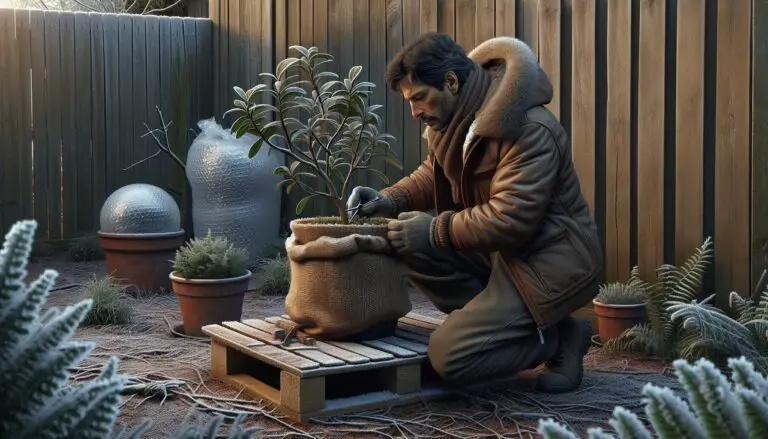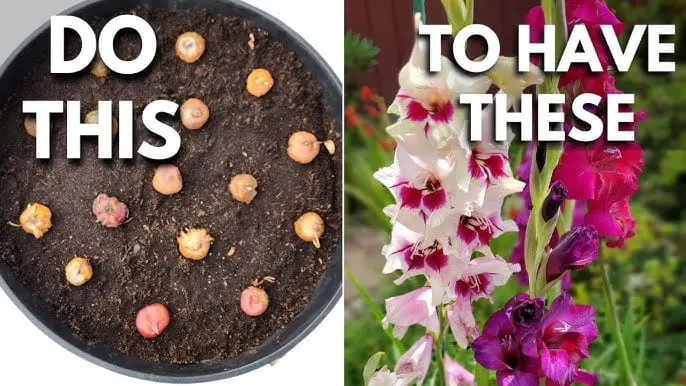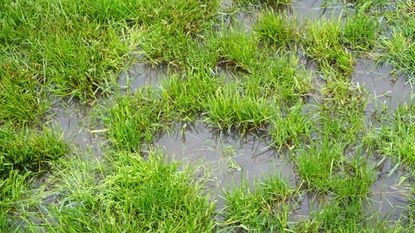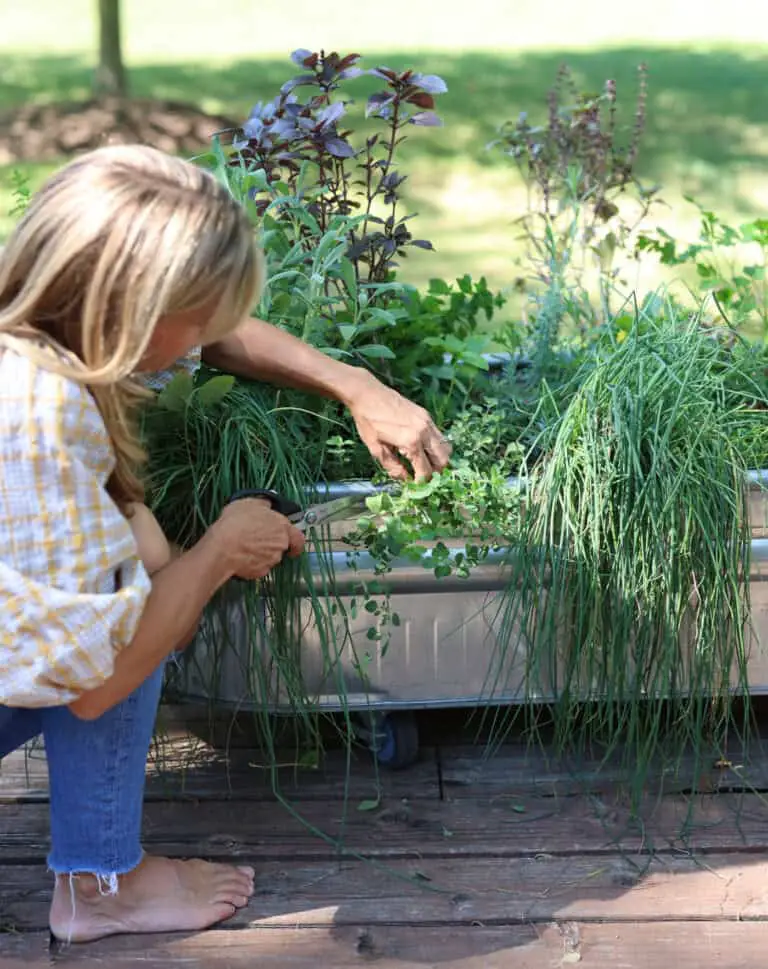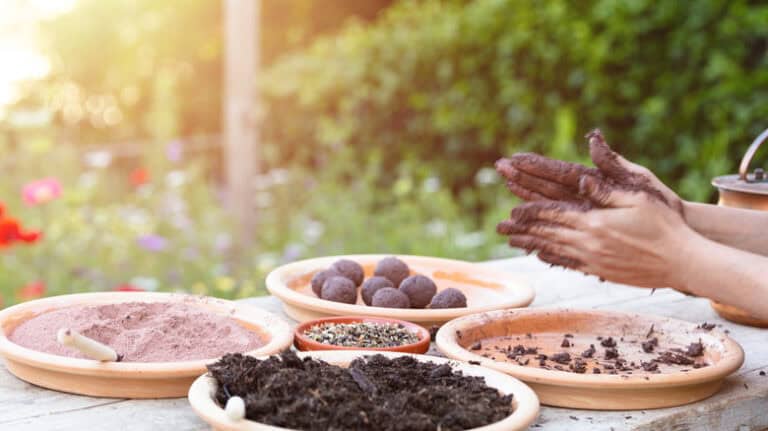Garden Items You Should Never Keep Outside Over Winter: Essential Tips
Garden tools, ceramic pots, and certain outdoor furniture should never be left outside during winter. Cold weather can damage these items.
Winter brings harsh conditions that can harm many garden items. Garden tools, for instance, can rust if exposed to snow and ice. Ceramic pots may crack due to freezing temperatures. Outdoor furniture made of metal or wood can deteriorate in the cold and wet conditions.
Protecting these items by storing them indoors ensures they remain in good condition for the next gardening season. Proper storage not only extends the life of your garden essentials but also saves money in the long run. Always prepare your garden for winter to maintain its beauty and functionality.
Delicate Plants
Not all garden plants can survive the harsh winter weather. Some plants are too delicate for the cold. They need special care to stay healthy. Let’s look at two types of delicate plants you should never keep outside over winter.
Tropical Plants
Tropical plants love warm climates. They can’t handle cold temperatures. Examples include:
- Orchids
- Bird of Paradise
- Hibiscus
These plants need to stay indoors during winter. Place them in a sunny spot. Make sure they get enough light and warmth.
Water tropical plants less in winter. Overwatering can harm them. Use a spray bottle to mist their leaves. This helps them stay humid and happy.
Succulents
Succulents store water in their leaves. They thrive in dry, warm places. Cold weather can freeze their water. This damages their leaves and roots.
Examples of succulents include:
- Aloe Vera
- Jade Plant
- Echeveria
Keep succulents indoors during winter. Put them in a bright window. They need lots of sunlight.
Water succulents sparingly in winter. Their soil should be dry before you water them again. Too much water can cause root rot.
It’s best to use a pot with drainage holes. This prevents water from sitting at the bottom.
| Plant Type | Care Tips |
|---|---|
| Tropical Plants | Keep indoors, place in sunny spot, water less, mist leaves |
| Succulents | Keep indoors, place in bright window, water sparingly, use pot with drainage |
Clay Pots
Clay pots are a popular choice for gardeners. They are attractive and functional. But leaving them outside over winter can be risky. Cold weather can damage these pots. Here are some tips to protect your clay pots during winter.
Cracking Risks
Clay pots are porous. They absorb water. During winter, this water freezes. When water freezes, it expands. This expansion can cause the pots to crack. Cracks make the pots weak and less durable. Avoid leaving clay pots outside in freezing temperatures. Protect your investment by storing them properly.
Storage Solutions
Storing clay pots indoors is the best solution. Keep them in a garage or shed. If you lack indoor space, cover the pots. Use a tarp or heavy-duty plastic. This keeps moisture out. Ensure the pots are dry before covering.
Stack the pots carefully. Use bubble wrap or old newspapers between each pot. This prevents scratches and further damage. Label your pots if they are different sizes. This makes it easier to find the right pot in spring.
| Storage Tips | Benefits |
|---|---|
| Store Indoors | Prevents cracks |
| Cover with Tarp | Keeps moisture out |
| Dry Pots First | Avoids freeze damage |
| Use Bubble Wrap | Prevents scratches |
| Label Pots | Easy to organize |
Garden Tools
Garden tools are essential for maintaining a beautiful garden. They help in planting, trimming, and weeding. Proper care ensures they last longer and work efficiently. Avoid leaving garden tools outside over winter.
Rust Prevention
Winter weather can cause garden tools to rust. Rust weakens the metal and makes tools less effective. To prevent rust, follow these steps:
- Clean all tools thoroughly.
- Dry tools completely before storing.
- Apply a coat of oil to metal parts.
Store tools in a dry place. Use a shed or garage. Avoid damp areas to keep tools rust-free.
Proper Maintenance
Proper maintenance keeps garden tools in good condition. Follow these tips:
- Sharpen blades regularly.
- Check handles for cracks or splinters.
- Tighten any loose screws or bolts.
Store tools neatly. Hang them on hooks or place them on shelves. This keeps tools organized and easy to find.
Use these tips to protect your garden tools. Proper care ensures they last many years. Your garden will thank you!

Credit: www.facebook.com
Outdoor Furniture
Outdoor furniture can transform your garden into a cozy retreat. But not all pieces are built to withstand the harsh winter months. It’s crucial to know which items to bring indoors to ensure they stay in top condition.
Material Considerations
Different materials react differently to winter weather. Understanding these differences helps you protect your outdoor furniture.
- Wood: Wood furniture can crack and warp in cold, wet conditions.
- Metal: Metal can rust if left outside during winter.
- Plastic: Plastic can become brittle and break in freezing temperatures.
- Wicker: Wicker can deteriorate quickly in cold and damp weather.
Safe Storage Options
Storing your outdoor furniture properly is essential. It extends the life of your pieces and keeps them looking great.
| Storage Option | Benefits |
|---|---|
| Garage | Provides shelter from wind, rain, and snow. |
| Basement | Offers a dry and temperature-controlled environment. |
| Shed | Keeps furniture out of direct exposure to elements. |
| Storage Covers | Protects furniture if indoor storage is unavailable. |
Always clean your furniture before storing it. Dirt and moisture can cause damage over time. Use breathable covers to prevent mold and mildew.
Water Features
Winter can be harsh on outdoor water features. Freezing temperatures can damage pumps and structures. It’s essential to prepare them properly to ensure longevity.
Pump Protection
The pump is the heart of any water feature. Freezing water can cause severe damage. To protect the pump, remove it from the feature. Store it in a dry, warm place.
If you can’t remove the pump, insulate it well. Use foam covers or blankets. This helps to keep it from freezing.
Check the pump’s manual. Follow the manufacturer’s winter care instructions. This ensures you don’t void any warranties.
Winterizing Tips
Winterizing your water feature is crucial. Follow these steps for best results:
- Drain the water: Empty all water from the feature. This prevents ice damage.
- Clean thoroughly: Remove debris and clean surfaces. This prevents mold growth.
- Cover the feature: Use a durable cover. This shields it from snow and ice.
- Store small parts: Place removable parts in a safe, dry place. This keeps them from freezing and cracking.
Consider using a table for a quick winterizing checklist:
| Task | Action |
|---|---|
| Drain Water | Empty all water from the feature |
| Clean Thoroughly | Remove debris and clean surfaces |
| Cover the Feature | Use a durable cover |
| Store Small Parts | Place in a safe, dry place |
Winterizing your water feature protects your investment. Proper care ensures it will be ready for spring.
Garden Decorations
Garden decorations add charm and personality to any outdoor space. But not all decorations are built to withstand harsh winter conditions. Knowing which items to bring indoors can save you time and money. Below, we explore which garden decorations should never stay outside over winter.
Fragile Ornaments
Fragile ornaments are delicate and can break easily. Snow, ice, and strong winds can cause damage. These items include:
- Glass sculptures
- Ceramic figurines
- Porcelain items
These items can crack or shatter in freezing temperatures. Always store them in a safe, indoor space during winter.
Weather-resistant Options
Not all garden decorations need to come inside. Some are made to withstand the elements. Here are a few weather-resistant options:
- Metal statues
- Stone sculptures
- Resin decorations
These items can handle rain, snow, and cold without damage. Still, consider adding a protective sealant to extend their life.
Hoses And Sprinklers
Hoses and sprinklers are essential for a healthy garden. They help keep your plants hydrated. But, leaving them outside over winter can cause problems. Learn why it’s crucial to store them properly.
Freezing Risks
Water inside hoses and sprinklers can freeze. Ice expansion can cause cracks and splits. Frozen hoses become brittle and break easily. This can lead to costly replacements.
| Item | Risk |
|---|---|
| Hoses | Cracking from ice |
| Sprinklers | Internal damage from freezing |
Proper Draining
Draining your hoses is simple and effective. Follow these steps:
- Disconnect the hose from the tap.
- Hold one end higher than the other.
- Allow all water to flow out.
Store hoses in a shed or garage. This keeps them safe from the cold. Ensure sprinklers are empty too. Removing water prevents freezing damage.
Use a dry cloth to wipe hoses before storing. This helps prevent mold and mildew. Keep them coiled neatly to avoid kinks.
- Store hoses off the ground.
- Keep sprinklers in a dry place.
- Check for leaks before storing.
Proper storage of hoses and sprinklers saves money. It extends their lifespan. Keep your garden tools in top shape for the next season.

Credit: justgreenlawns.com
Outdoor Lighting
Protect garden items from harsh winter conditions. Bring delicate outdoor lighting inside to prevent damage and ensure longevity.
Outdoor lighting enhances your garden’s beauty and safety. Winter weather can damage these lights. Protecting them is essential for longevity and safety.
Electrical Safety
Electrical safety is crucial for outdoor lighting. Harsh winter conditions can damage electrical components. Exposed wires and wet conditions are dangerous.
- Unplug all outdoor lights before winter starts.
- Inspect wires for any signs of wear or damage.
- Store lights in a dry, safe location.
GFCI outlets can prevent electrical shocks. Use them for all outdoor lighting. Extension cords should be rated for outdoor use and winter conditions.
Weatherproof Storage
Proper weatherproof storage prolongs the life of your outdoor lighting. Store lights in a cool, dry place.
| Storage Tips | Details |
|---|---|
| Use original packaging | Protects lights from dust and moisture. |
| Label boxes | Helps you find lights easily next season. |
| Store in a dry place | Prevents mold and electrical damage. |
Plastic bins with tight lids work well. Avoid storing lights in damp basements or garages.
Compost Bins
Compost bins help recycle organic waste into rich soil. Many people leave them outside during winter. This can cause issues like bad smells and reduced compost quality. Learn how to manage your compost bins in winter.
Odor Control
During winter, compost bins can start to smell bad. Cold temperatures slow down decomposition. This causes waste to build up and produce odors. To control smells, avoid adding meat, dairy, and oily foods. These items decompose slowly and create strong smells.
- Use browns like leaves and straw.
- Keep the bin covered.
- Turn the compost regularly.
Insulation Methods
Insulating your compost bin helps it work better in winter. There are several ways to insulate your bin. You can wrap the bin in old blankets or tarps. You can also use straw bales around the bin.
| Method | Materials | Effectiveness |
|---|---|---|
| Blanket Wrap | Old blankets, tarps | Moderate |
| Straw Bale Insulation | Straw bales | High |
Another method is to place the bin in a sheltered area. This can be a garage or shed. Keeping it out of the wind helps maintain heat inside the bin.
Credit: www.mymonona.com
Frequently Asked Questions
What Garden Items Should Stay Indoors In Winter?
Delicate plants, garden tools, and ceramic pots should stay indoors to avoid frost damage and prolong their lifespan.
Why Should You Bring Garden Tools Inside?
Moisture and cold can cause rust and wear on garden tools. Storing them inside preserves their functionality.
Can Ceramic Pots Crack In Winter?
Yes, ceramic pots can crack due to freezing temperatures. Keeping them indoors prevents this damage.
Conclusion
Protecting your garden items from winter’s harsh conditions is crucial. Store delicate items indoors to prevent damage. Take action now to ensure your garden tools and decor last longer. Proper storage saves money and effort in the long run. Keep your garden beautiful and functional by safeguarding your items each winter.

